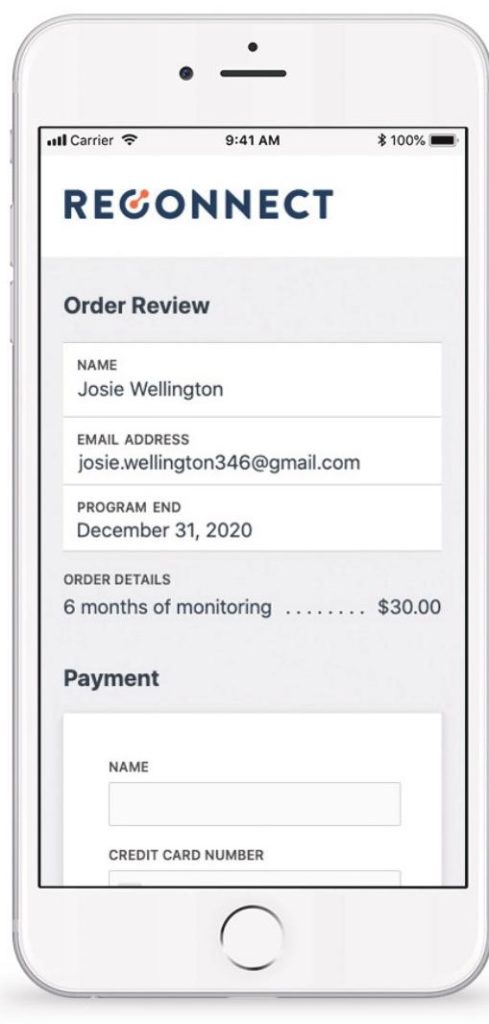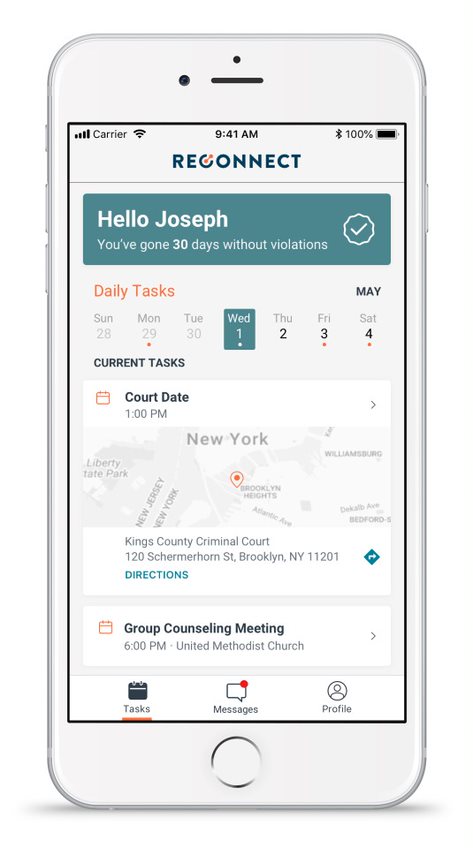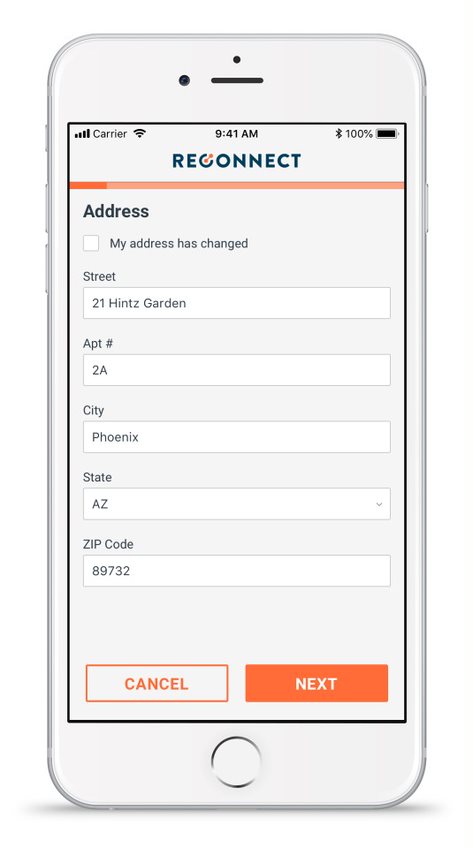They include:
- Evidence-based practices
- A balanced number of supervision conditions that benefit public safety
- Conditions that are tailored to the individual
- Simplified contact between the individual and program staff
- Shorter probation lengths
Researchers also assert some existing supervision models meet those criteria. Let’s explore two examples.
Supervision Models Research Says Work
GOAL-BASED SUPERVISION (GBS)
GBS focuses on outcomes and positive behavioral change rather than supervision length. Based on behavioral science, in GBS models, individuals must “either complete specific requirements or maintain general [observance of the] conditions of supervision,” and then “they will be rewarded with an early discharge from supervision.”
EARNED COMPLIANCE PROGRAMS (ECP)
Earned Compliance Programs were designed “based on research showing that individuals may respond best to a combination of rewards and sanctions”—carrot and stick. While sanctions may be used, ECPs primarily focus on incentives to encourage adherence to probation conditions. ECPs set clear expectations for individuals to follow while under supervision and “establish a formula where they can earn reductions in the lengths of their supervision terms for [doing so].” Those reductions are called earned compliance credits (ECC). For example, “in Texas, probationers are awarded term reductions…for earning educational degrees, making full payment of court costs, fines, attorneys’ fees and restitution, and successfully completing treatment or rehabilitation programs”
To be effective, ECPs must “establish and communicate clear expectations and conditions to the individual on supervision from the outset.”
An essential part of both GBS programs and ECP is the Automatic Review of Supervision (ARS). ARS “ensures that states use specific guidelines and definable behavioral goals to determine eligibility for early termination and should also involve documentation and monitoring of termination decisions to ensure fairness”.
How Reconnect Helps Make Effective and Appropriate Supervision a Reality
“Knowledge of “what works” alone is not sufficient to sustain long-term change in an organization. Agencies also need effective implementation planning and execution skills and a comprehensive infrastructure designed to support and sustain evidence-based practices for the long term.”
While the importance of evidence-based supervision models is increasingly recognized across the US, implementation remains a persistent challenge for programs.
That’s where Reconnect comes in.
Our platform was designed with evidence-based practices in mind. Let’s look specifically at how Reconnect’s platform can help programs successfully implement GBS and ECP supervision models.
Implementation
Around three-quarters of U.S. states use some form of the GBS model—ECPs are a type of GBS—but implementation has proven tricky. Issues vary from state-to-state, but some of the common implementation hurdles are:
- For individuals, remaining current with program-related financial obligations
- For program staff, agreeing on what counts as adherence to program conditions—i.e. if an individual misses their curfew by 5 minutes are they observing their supervision conditions or not?
- Identifying and agreeing on the factors that determine whether an individual should be released
- Clearly communicating goals to individuals in the program
- Overcoming the increased administrative burden of tracking adherence to probation goals or conditions
Let’s dig into how Reconnect tackles those hurdles.
KEEPING TRACK OF FINANCIAL OBLIGATIONS
All too often the fines and fees associated with supervision become a hurdle for individuals on probation. Unfortunately, many supervision platforms exacerbate that issue with inflated pricing for the program and the individual.
Reconnect doesn’t do that.
We’re open and honest about our pricing and there are no hidden or unexpected fees anywhere. Plus, our pricing is truly budget-friendly. Check out this quick comparison.
| Client App: Price Per Month | Locked Down Phone: Price Per Month | Case Manager App: Per Month | Customer Service | |
| Reconnect | $15 | $45-60 | Included | Included |
| Competitor A | $30+ | $125 | $125 | $.50 – $25 per request |
| Competitor B | $17+ | $191 – $225 | $90 | Price varies per issue |
Want more details? Check out our full pricing list.
On the front-end, Reconnect’s pricing lessens the economic burden on everyone, but Reconnect also tackles the administrative challenge presented by fines and fees by simplifying payments with self-pay.
Part of our client app—Reconnect Community— self-pay was designed to make the payment process transparent and easy, for clients and program staff.
For clients, self-pay reminds them when payments are due, how much is due, and generates a secure individual link for them to pay at—all from their phone. Eliminating the need for in-person payments. Plus, multiple studies show that reminders are an effective way to prompt desired behaviors!
For case managers, Reconnect’s self-pay allows them to customize payment time frames, set up reminders, and see when payments are made, letting them set it and forget it. Freeing up their time for more pressing issues.
CLARIFYING PROGRAM PARAMETERS
As noted above, making sure program staff are on the same page about supervision conditions and factors is a persistent challenge for programs. Reconnect has a two-pronged approach to help.
Part One: Identify Program Goals in Onboarding
While many probation programs face similar issues, Reconnect knows that no solution will work for every program. That’s why our onboarding team makes a point of reaching out to new users and identifying what the program’s goals and needs are. Then we work with the program to make sure they know how to utilize Reconnect’s platform to make that a reality.
This helps ensure the entire program—and Reconnect—is on the same page from the start.
Part Two: At-a-Glance Visualization
The end of Reconnect’s platform program staff use is Reconnect Manager (RM)—think of it as the nerve center of Reconnect’s solutions. It’s used to check-in with clients, set up events, perform well-checks, and provide support and accountability.
The first thing program staff see when they log into RM is the dashboard. The dashboard is set up so staff can see at a glance what is on a client’s plate for the day—counseling, court date, etc.—and also see what issues have popped up—for example, if a client missed a virtual curfew check. Allowing staff to clearly visualize how individuals are adhering to their sentencing conditions and where they may need additional support. Plus, the information visualized there can be compiled into reports and printed for visibility.
COMMUNICATING GOALS
For individuals to be successful on either the GBS or ECP model, clear communication of program expectations and conditions is essential. The dashboard of Reconnect’s client app—Reconnect Community—was built with clear communication in mind. When individuals open the app, they see a checklist of what they need to do that day—check-in, attend counseling, update their contact information, etc. If they have questions about or need support for any of the day’s tasks, they can reach out to their case manager with the messaging feature of the app.
OVERCOMING ADMINISTRATIVE BURDENS
A vital part of both GBS and ECP models is documenting if individuals are adhering to program conditions and goals; since that adherence is what determines if the individual is eligible for early release from supervision.
What that means for programs is paperwork. Lots of it.
Reconnect Manager (RM) is built to help programs tackle it. To make it simple to document interactions and outcomes, every piece of communication that passes through RM is automatically recorded and saved.
Including:
- Messages—direct or bulk
- Video Chats
- Form submissions
From RM, staff can create reports of the gathered data for comparison, accountability, and visibility. RM can also help programs gather needed data through the platform’s self-report function including up-to-date contact information, contact with law enforcement, and more.
Want to see our platform in action? Reach out to us, tell us what hurdles your program is dealing with. We’ll create a tailored demo that shows how you can use Reconnect’s platform to overcome them.
Happening Today at 4PM ET!
A FIRESIDE CHAT WITH CHIEF WENDY STILL
Our fireside chat with Wendy Still–the Chief Probation Officer of Alameda County, CA—is today at 4 pm ET.
When we announced this chat, we were blown away by the level of interest, so many people in the justice industry have respect for the work Chief Still has done. In response, we expanded the capacity of the chat to allow more people to attend. There are a few more spots left, grab one while you can.
Time is running out, register now.



